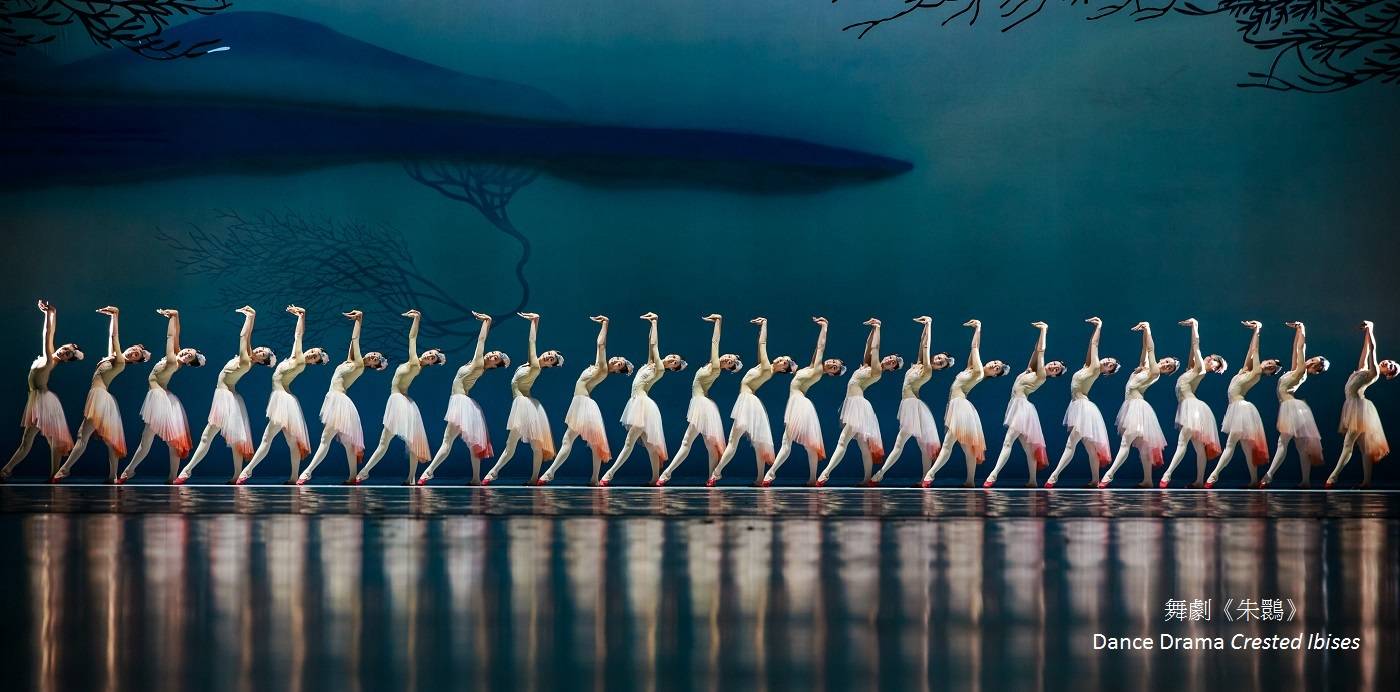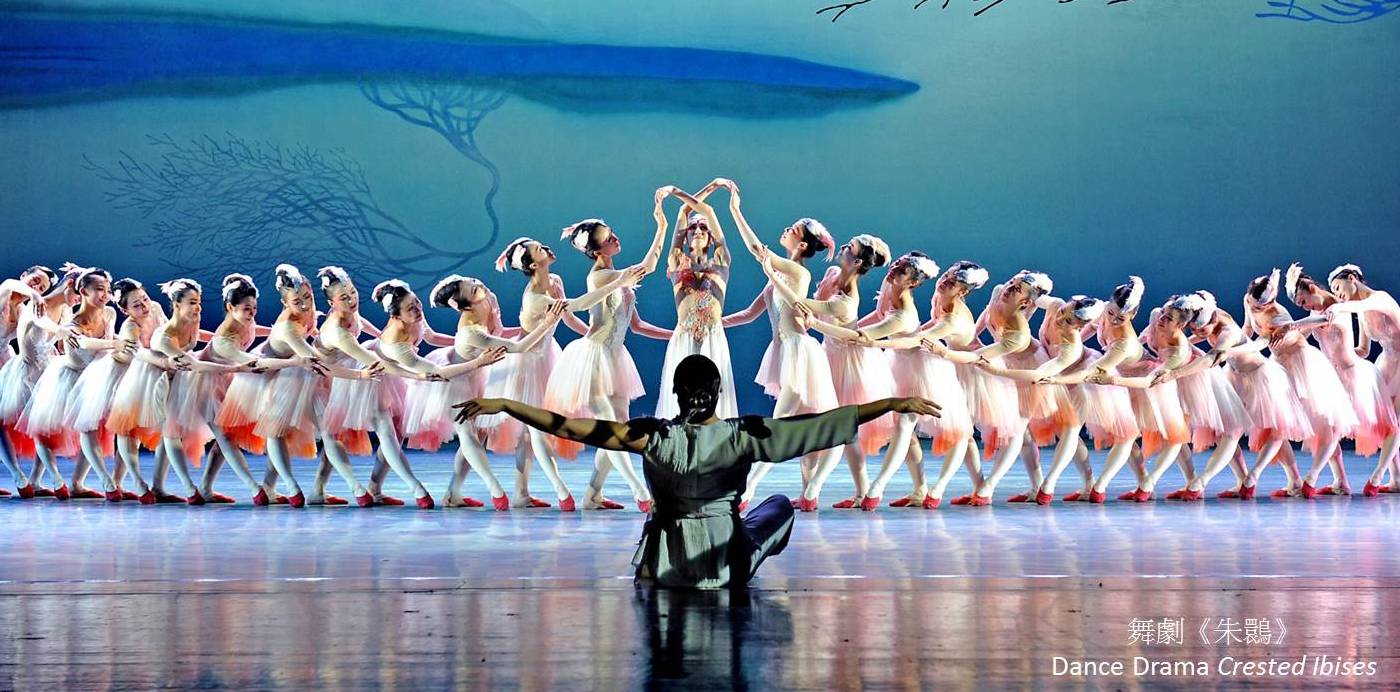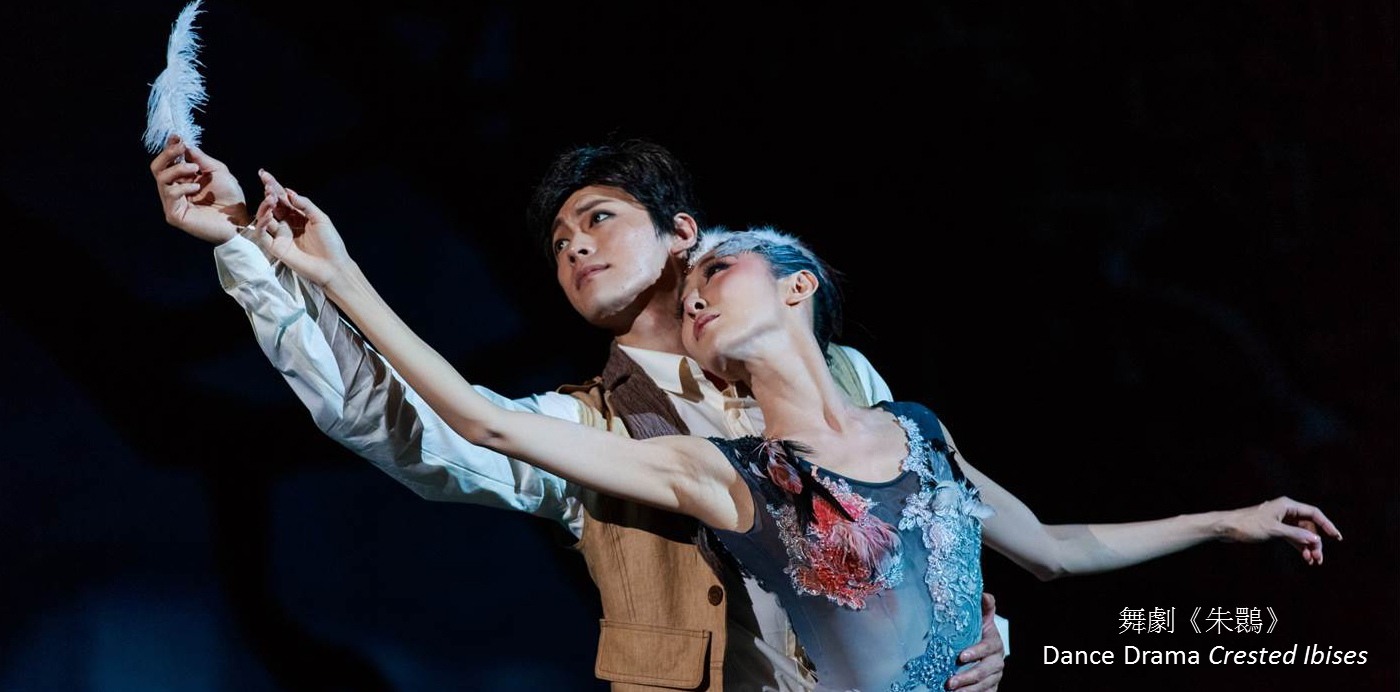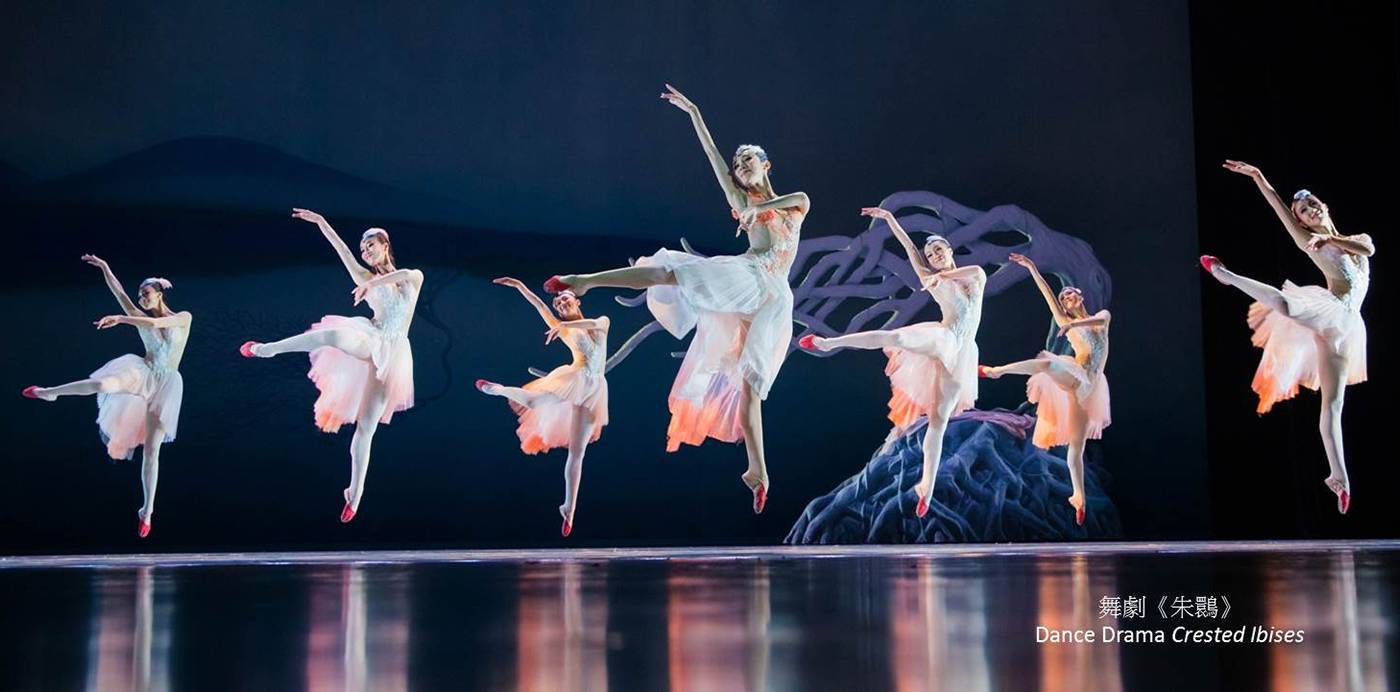
Crested Ibises Dance Drama

Crested Ibises Dance Drama
Event details
‘A showcase of traditional Chinese aesthetics: subtle, elegant and enchanting.' - Chinese Art News


A Dance Drama in Two Acts
Crested ibis, a beautiful and precious species symbolizing happiness and auspiciousness, is known as the ‘bird of good fortune’. Long ago in the agrarian age, people lived in harmony with crested ibis as good friends and companions. In our deep memory, crested ibis is a kind of affectionate bird. They are reserved, elegant, pure and noble, yet also sensitive, vulnerable and suspicious. Back then, crested ibis was such a close and warm friend to us.
No one knows since when these ‘birds of good fortune’ gradually faded away from our sight. As we ran hastily towards modernisation and urbanisation, blue sky, clear water and a tranquil natural habitat, upon which wild crested ibises required for propagation, were diminishing and became more critical. In less than 100 years’ time, wild crested ibises were declared to be endangered.
In May 1981, Chinese scientists discovered seven wild crested ibises in Yang County, Shaanxi Province. The once declared as endangered ‘bird of good fortune’ reappeared in our sight. Today, with consciousness and meticulous care in Mainland, Japan, Korea and Eastern Siberia, crested ibises are exhibiting an auspicious sign of revival.
As succinctly express in ‘the unbearable lightness of being’, what was once lost should be treasured forever.


Producution Team
General Supervisor: Li Ruigang Wang Jianjun
Chief Planner: Wu Xiaoming Xia Guozhu Feng Shuangbai
Producer/ Artistic Supervisor: Chen Feihua
Scenarist: Luo Huaizhen
Director/ Choreographer: Tong Ruirui
Notice
Programme Length
The running time of each performance of Dance Drama Crested Ibises is approximately 1 hour and 45 minutes including an intermission of 20 minutes.

Follow our WeChat for event news, deals, gossip and more!
Crested Ibises Dance Drama

 Add us on WeChat to speak to our friendly customer service team! ID: Tickets247Tickets
Add us on WeChat to speak to our friendly customer service team! ID: Tickets247Tickets